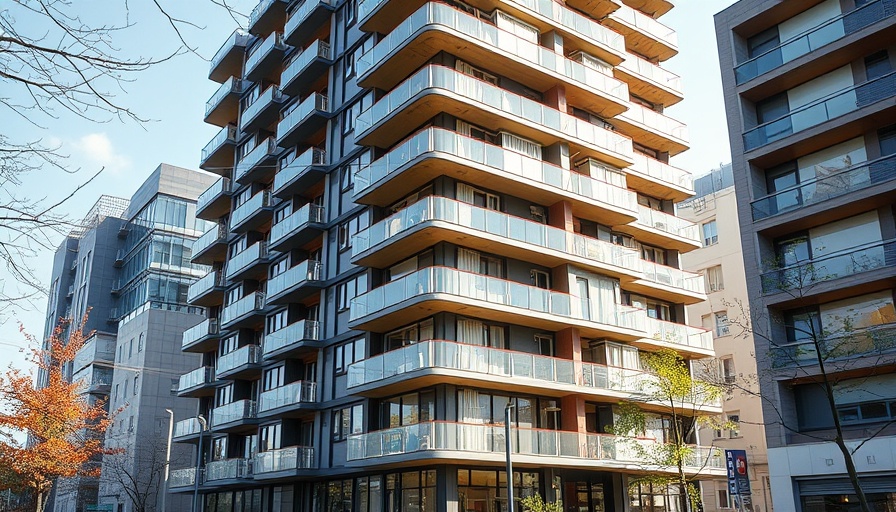
The Landmark Ruling: A Game Changer for UK Developers
A recent Supreme Court ruling has set a significant precedent for UK developers, as BDW Trading emerged victorious in a landmark case against URS Corporation, the designer of a high-rise building plagued by design defects. Following in the shadow of the Grenfell Tower disaster, which underscored the perils of inadequate building safety measures, this ruling is pivotal in allowing developers to recover costs incurred during necessary remedial works.
Understanding the Case: A Closer Look
The Grenfell Tower fire in 2017 tragically claimed the lives of 72 individuals and ignited a national discourse about building safety and regulations. In light of these events, BDW Trading took action, investigating several properties within their portfolio and undertaking remedial works on those identified with defects, despite having already sold long leases on many of the flats.
Initially, URS Corporation contested BDW's claim for recovery of the expenses tied to the remedial works, arguing that the developer's choice to proceed with the fixes was voluntary. However, the Supreme Court ruling unanimously dismissed URS's appeal, thereby affirming that developers have a rightful claim to recoup costs associated with necessary safety remedial actions under the extended Defective Premises Act (DPA).
The Building Safety Act: Strengthening Developer Rights
In June 2022, the enactment of the Building Safety Act extended the DPA's limitation period from six to thirty years. This retrospective legislation empowers developers like BDW Trading to pursue claims for historic defects that compromise safety. Legal experts Mark Christie and Amy Johns from Clarke Willmott noted that this ruling provides clarity on developers' rights in recovering costs from the supply chain, offering a framework for accountability within the construction industry.
Why This Matters: Implications for Property Investors
This ruling carries significant implications for property investors and owners. With legal support now firmly on the side of developers, there's an enhanced sense of security in undertaking necessary safety improvements. Investors will be buoyed by the knowledge that they may reclaim expenses related to rectifying building defects, thus safeguarding their investments and reinforcing overall property values. This also encourages proactive measures toward building safety, benefiting communities at large.
Repercussions for Contractors and Designers
While developers may feel optimistic about the ruling, contractors, designers, and consultants involved in any prior non-compliant work may face increased scrutiny and potential claims. The legally endorsed reclaiming of costs related to unsafe buildings raises the bar for construction quality and compliance, pushing these stakeholders to prioritize safer practices. As the likelihood of claims rises, industry players must reassess their approach to building specifications and client commitments.
Broader Industry Impact: A Shift in Construction Culture
This case may herald a cultural shift within the construction sector, prompting a more diligent oversight of past projects as developers become emboldened to rectify discovered defects. The ruling paves the way for a collaborative effort between developers, contractors, and local authorities to elevate safety standards. As remedial works become more routine, the industry may witness a significant increase in construction projects designed with safety as a paramount concern.
Moving Forward: The Path Ahead for Investors
Investing in property is often fraught with uncertainties, but the clarity provided by this ruling may inspire greater confidence among potential buyers and investors. Historical defects need not be a deterrent if associated costs can be recouped. With stronger legal backing, developers may feel driven to ensure compliance and safety, potentially leading to a bolstered reputation within the housing sector.
Conclusion: Seizing Opportunities in a New Landscape
As a result of this landmark case, the UK property market stands at a crucial juncture. The reaffirmation of developers’ rights to recover costs represents an inviting landscape for both seasoned investors and newcomers alike. By understanding the implications of this ruling, property owners can approach future investments with a renewed sense of diligence and optimism.
If you are a property owner or investor, now is the time to stay informed and proactive about changes in legislation that could influence your investments. Embrace the opportunities that arise from heightened safety standards, and ensure your property investments are not only profitable but also contribute to the wellbeing of your community.
 Add Row
Add Row  Add
Add 





Write A Comment